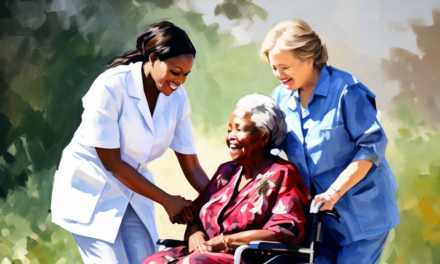In recognition of Men’s Health Awareness Month, International SOS, a global leader in health and security risk services, underscores the significance of fostering a supportive workplace environment that prioritizes men’s health and mental wellbeing.
This initiative addresses a pressing concern as men continue to face health disparities when compared to women, as evidenced by various health metrics, including life expectancy, mortality rates, disability-adjusted life years, and non-sex-specific disease death rates. The World Health Organization (WHO) reports that non-communicable diseases (NCDs) are responsible for approximately 74% of annual deaths worldwide, with 86% of all male fatalities in 2018 attributed to NCDs and injuries.
The Health Disparities
WHO data highlights a concerning pattern where men, across all socioeconomic groups, exhibit riskier behaviours such as smoking, unhealthy dietary habits, increased alcohol consumption, and higher rates of injuries compared to women. In 2020, a substantially higher percentage of men (36.7%) used tobacco compared to women (7.8%), further accentuating the need for concerted efforts to improve men’s health. These statistics underscore the pivotal role that organisations can play in enhancing men’s health within their workplaces.
One significant challenge is that men are less likely than women to seek preventive care services, often resulting in undiagnosed conditions. Additionally, men are found to be less likely to receive mental health treatment, with stigma and a perception of illness as a sign of weakness serving as notable barriers. Dr Anthony Renshaw, Regional Medical Director at International SOS, emphasises the importance of Men’s Health Awareness Month, stating, “Employers can play a pivotal role in fostering open discussions, reducing stigma, and promoting a supportive environment for men to seek the help they may need.”
International SOS Guidelines
International SOS offers a structured approach for organisations to provide tailored support for men’s health and wellbeing in the workplace. This approach, encapsulated by the acronym ‘H-O-P-E,’ encompasses the following steps:
- Hold Workplace Men’s Forums
Creating a safe space within the workplace is paramount. By establishing supportive environments where all employees, particularly men, feel comfortable addressing their health concerns, organisations empower their workforce. - Offer Male-Specific Confidential Support
Providing access to confidential support from mental health professionals is crucial. This ensures that male employees have a confidential outlet to discuss their mental health concerns without fear of judgment. - Provide Training for Team Leads
Equipping team leaders with appropriate training is essential. This training enables them to identify early signs of poor physical and mental health in their team members and direct them to appropriate resources. - Encourage Regular Health Check-ups
Encouraging employees to undergo regular health check-ups is instrumental. Screening for early detection and treatment of NCDs and offering mental health assessments when necessary can lead to early intervention and improved overall health.
As Men’s Health Awareness Month unfolds, International SOS’s emphasis on men’s health in the workplace serves as a critical reminder of the work that remains to be done. By implementing the ‘H-O-P-E’ approach, organisations can make significant strides towards promoting men’s wellbeing, breaking down barriers, and fostering a supportive environment that allows all employees to thrive in both their physical and mental health. This collaborative effort between employers and employees is essential in addressing the disparities and challenges faced by men in the realm of healthcare and workplace wellbeing.
Further resources:
1. The World Journal of Men’s Health | Changing Men’s Health: Leading the Future
2. World Health Organization (WHO) | Noncommunicable Diseases Fact sheet
3. World Health Organization (WHO) | Men’s Health Fact sheet
4. World Health Organization (WHO) | Tobacco Fact sheet
5. National Institute of Mental Health | Men and Mental Health






